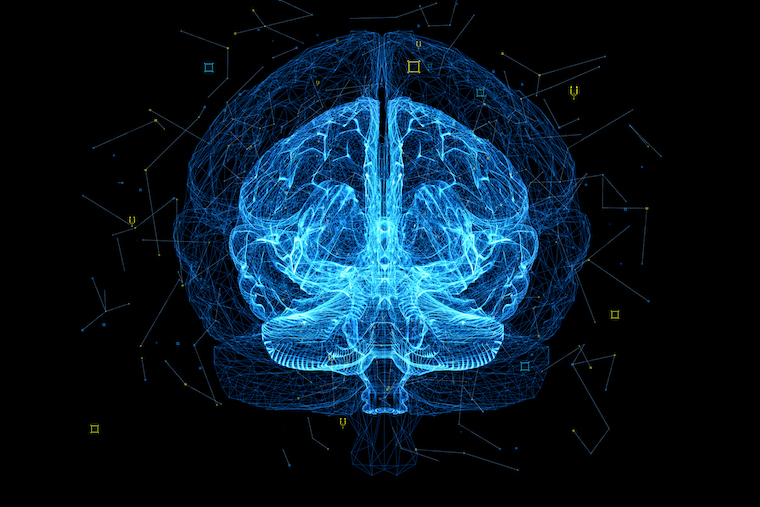As we approach the end of the year, it seems like a good time to look back at some of our major discoveries of 2020. A tremendous amount of effort and research has gone into battling COVID-19, but there have been many other important findings and milestones as well. Here are some brain-related discoveries you may have missed:
John Lukens, PhD, and his team had not one but two fascinating brain findings. In the first, they identified a potential cause of lifelong behavioral issues. The researchers discovered that an unexpected form of cellular cleanup takes place in the brain during development. If this process goes wrong – happening too little or too much – it can cause permanent changes in the brain’s wiring. In lab mice, this results in anxiety-like behavior, and it may play a role in neurological conditions such as autism in humans.
Later in the year, the Lukens lab determined that even mild concussions and traumatic brain injury (TBI) cause swelling that blocks the brain’s ability to clean itself. This has an immediate impact on memory and brain inflammation, the researchers found, but it also may set the stage for Alzheimer’s, dementia and other neurodegenerative diseases. The discovery helps explain why repeated brain injuries are so harmful and suggests they increase our risk of long-term problems.
In other brain news, our Hui Li, PhD, and his team identified the oncogene (a cancer-causing gene) responsible for glioblastoma, the deadliest brain tumor. The gene, AVIL, normally helps cells maintain their size and shape, but it can be shifted into dangerous overdrive by a variety of factors, causing cancer cells to form and spread. The researchers found that blocking the gene’s activity destroyed glioblastoma cells in lab mice but had no effect on healthy cells. This suggests targeting the gene could be an effective treatment option.
More good news on glioblastoma: Our Jason Sheehan, MD, PhD, is seeing promising results in his early exploration of focused ultrasound's potential to treat glioblastoma tumors. The technique hits cancer cells with a drug that sensitizes them to sound waves, then blasts them with focused ultrasound. The sound waves create tiny bubbles inside the cancer cells, causing them to die.
Dr. Sheehan has also launched a clinical trial to see if focused ultrasound can open the protective barrier that surrounds the brain to enhance the delivery of chemotherapy for patients with glioblastoma. That trial is taking place at UVA, Brigham and Women’s Hospital, the University of Maryland and West Virginia University.
Richard Price, PhD, of the School of Medicine and UVA's School of Engineering, is also exploring focused ultrasound's potential to open the blood-brain barrier. The approach, he and his colleagues hope, could revolutionize treatment for conditions from Alzheimer’s to epilepsy to brain tumors – and even help repair the damage caused by stroke.
Pretty impressive stuff for a difficult year, huh? It's heartening to know that despite the pandemic, we're still making progress in other areas as well.
